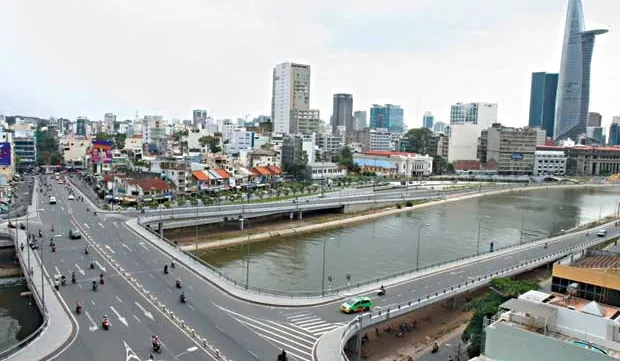Global oil price decrease impacts Vietnam’s economy

However, the state budget revenue is suffering because Vietnam is an exporter of crude oil. We’ll listen in to what economists have to say about this situation.
Lower oil prices have enabled the Vietnamese government to curb inflation and the State Bank to reduce interest rates. Therefore, enterprises can access loans more easily and expand production. However, some economists say that consumers have yet to benefit from the changes.
Tran Dinh Thien, Director, Central Institute for Economic Management said: "The Vietnamese market recently saw some steep declines in prices. However, several sectors, such as transport, have tried to postpone lowering prices. I think the price reductions are not adequate."
At the same time, the state budget is suffering from lower crude oil prices. As of mid-August, the crude oil export turnover was just over 2.56 billion dollars. This is only half of last year’s figure, even though export volumes were comparable.
Nguyen Minh Phong, Economist said: "To make up for the losses, the government has decided to raise production and export a number of oil rigs that bring good profits, and lower production at some rigs that don’t bring good returns. This is relevant to the nation’s interest."
In the long run, economists say that the best solution for the state budget is to rely more on revenue from other manufacturing and trade activities.
Tran Dinh Thien, Director, Central Institute for Economic Management said: Vietnam’s state budget is too dependent on the export of natural resources. So the risks are high. I think that the downward trend of the global oil price will continue, and Vietnam should take measures to deal with it in the long term.
Experts have forecast that the global oil price decline could continue to 2016 and beyond. To take advantage of the trend and overcome the difficulties it brings, the economy will require updated policies and strategies.
Tags:





